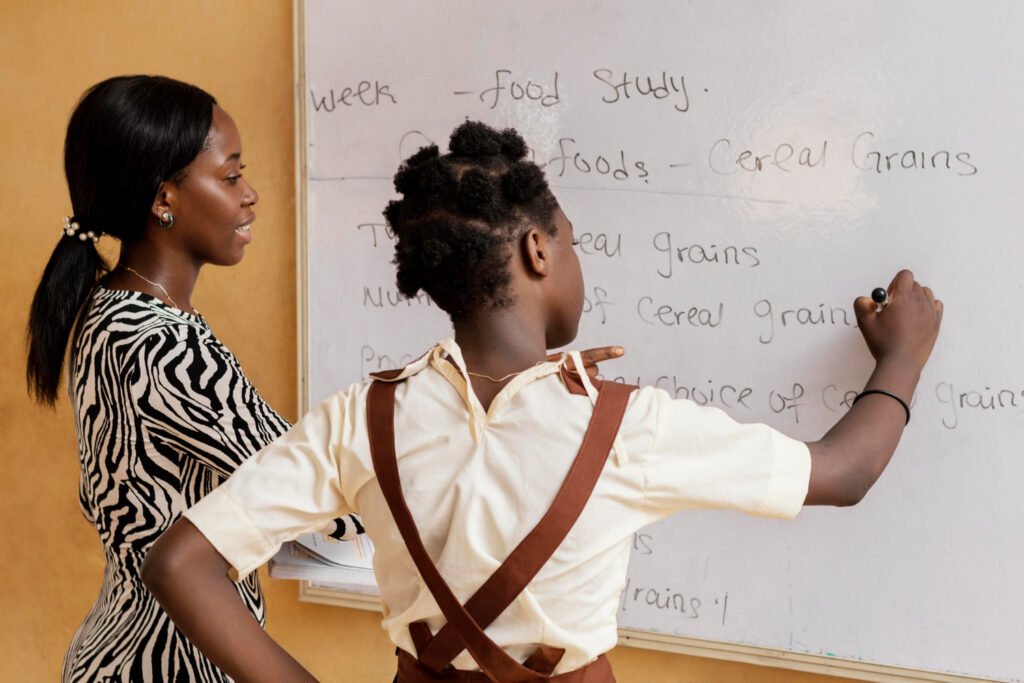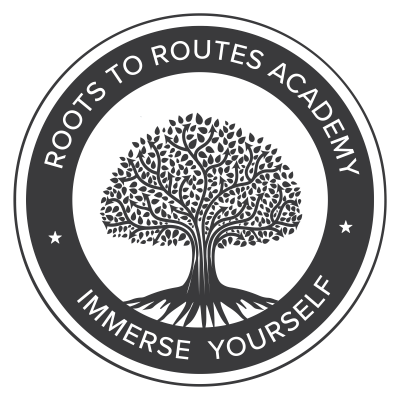5 Reasons Why Earning Your Grade 11 Math Credits During Summer Is a Smart Choice
June 23, 2025

Hey there, students (and parents) of Ontario, let’s talk about why taking Grade 11 math in summer is more than just ‘getting it out of the way’. It’s a smart move that pays back across your scholarships, co-op placements and university applications, all while letting you enjoy your fall semester.
Ready? Here are 5 smart reasons to consider summer math programs at Roots to Routes Academy.
1. It Boosts Scholarship Eligibility and Helps You Stand Out Early
Imagine this scenario: it’s September, and scholarship applications are lining up on your desk. Your transcript already indicates that you have completed Grade 11 math, so your fall timetable has space available for an arts elective or a leadership course. Instead of squeezing math alongside honours English, chemistry and civics, you’re doing something you truly enjoy, say, digital photography or peer mentoring. That’s exactly what scholarship committees notice.
They don’t just look at straight As. They’re searching for well-rounded candidates who balance academics with unique interests. When you’ve freed up your fall schedule, you suddenly have the time to take on something that stands out, whether that’s co-founding the Eco-Club, coaching a junior sports team or volunteering with a mental-health initiative. These activities, combined with your strong math mark, demonstrate to scholarship judges that you’re not just a bookworm; you’re a community builder with proven time-management skills.
And let’s be honest: earning Grade 11 math in summer often means you’ve had to stay focused, quizzes every week, nightly practice problems, those “aha” moments at 7 p.m. This disciplined approach translates into a higher GPA the next school year, since you can spread your mental energy more evenly across fewer courses each term. A balanced, yet ambitious, profile like that is exactly what tends to land those coveted awards.
2. It Open Doors to Co-op Placements and Job Shadowing
Co-op programs let you earn credits while gaining real-world experience in fields like engineering, business, healthcare or the arts. But if you’re scrambling to fit Grade 11 math into your regular timetable, you might miss out on prime co-op positions. By completing that course in summer, you free up your fall to apply for co-op placements without worrying about dropped classes or endless makeup exams.
Picture yourself walking into a local tech firm on Day 1 of co-op, confident in your math background. You’re already comfortable with functions, trigonometry and data analysis, skills that employers value when assigning tasks like spreadsheet modelling or project estimates. Instead of feeling like you’re just an eager intern, you become someone who can jump into digital-marketing analytics or basic coding right away, because your math foundation is already solid.
Beyond technical co-ops, even positions in business offices or nonprofit organisations will appreciate someone who has tackled a full-credit math course in the summer. It signals to your supervisor that you can handle responsibility, follow through on weekly deliverables and manage your own learning. That kind of reference, “So-and-so came to us with Grade 11 math done, jumped into tasks seamlessly, and even helped improve our data-tracking spreadsheet”, can carry real weight when you’re applying for summer jobs or thinking ahead to post-secondary internships.
3. It Gives Your University Applications a Head Start
Let’s face it: when universities (like Western, Queen’s or U of T) sift through thousands of applications, they’re looking for students who know how to juggle rigour with ambition. By completing Grade 11 math in summer, you enter Grade 11 with a schedule that is less hectic and more purpose-driven. Instead of scrambling to keep up with five demanding courses, you can sign up for advanced courses, like AP Physics, AP Computer Science or IB Economics, that strengthen your academic portfolio.
Universities also place value on demonstrated interest: clubs, leadership roles and volunteer experiences that tie into your chosen program. If the fall calendar is wide open or at least not jam-packed, you can attend university open houses, go on campus tours, join summer essay-writing workshops or even schedule virtual info sessions with professors. By the time applications roll around, your essays will show a thoughtful, well-researched passion for your intended field, without the frantic “I-did-all-this-in-one-night” tone.
Here’s a heads up: many Ontario universities ask for a Mid-Semester 1 update or predicted Grade 12 marks. Having Grade 12 math already finished means you have fewer “in-progress” courses to describe. Your predicted average is based on strong, completed grades, which can give you a smidge of extra confidence when universities eyeball your file mid-year. It also reduces the anxiety of “What if my mid-term numbers slip because I’m drowning in math and all my other courses at once?”
4. You Learn Time-Management Skills That Actually Stick
A lot of students think of summer courses as “cram sessions”, but a well-structured summer math class is much more than a speed run. You’ll have daily lessons, weekly sessions, and short homework sets that demand consistent effort, no all-nighters allowed. This structure teaches you how to budget your time effectively.
Instead of procrastinating until September, when you’re balancing new classes and extracurricular sign-ups, you’ll have spent summer building a habit: reviewing notes after class, practising problems each evening, and hitting small milestones before moving on. These are exactly the skills you’ll need in Grade 11 and beyond. Once you’ve mastered how to map out a study plan (e.g., “Finish Chapter 4 problems by Friday; review all mistakes Saturday morning”), you can apply that same process to English essays or lab reports in the fall.
Better sleep, better meals, and even a daily walk become part of the routine when you’re not desperately rushing to finish math homework at 11 p.m. on a school night. Your parents notice this, too, when they see you juggling summer study blocks, scheduled break times and weekend catch-ups, they relax a bit. They know you’re practicing self-discipline and building a schedule you can lean on once the new school year starts.

5. You Build Confidence and Creativity
There’s something empowering about starting September with a “win” already under your belt: Grade 11 math is complete, and you’ve proven to yourself you can conquer something challenging in a short period. That confidence spills over into everything else. Instead of feeling “behind” when the first day of Grade 11 rolls around, you walk into homeroom knowing you’re already strong in one required subject.
But here’s where it gets even more exciting: with that math credit out of the way, fall itself becomes fertile ground for exploration. Maybe you join an art-and-design camp, attend a coding boot camp or volunteer at a local charity. Those experiences refine who you are; maybe you realise you have a knack for digital marketing, or you discover a passion for environmental advocacy. By the time fall ends, you have new skills, fresh stories to tell and a clearer sense of direction.
That’s gold when it comes to writing personal statements for scholarships or university applications. You’re not just listing “volunteered 20 hours at the library”; you can say, “I dedicated my evenings to teaching digital literacy at the community centre, using my math skills to help seniors track budgets online.” That narrative stands out because it’s authentic; you literally spent your fall season making it happen.
Next Steps for You and Your Family
So, what does this look like in practical terms? If you’re a Grade 10 student, thinking ahead, chat with your parents this June. Consider registering for the Roots to Routes Academy’s summer Grade 11 math course.
Talk to your parents about how a summer investment in math can pay off in scholarships, co-op placements and a less frenetic fall term.
If you’re a parent, listen to your teen’s interests. Could they explore drama, graphic design or student leadership this fall, instead of wrestling with math? Positive reinforcement in summer builds habits that last through September and beyond.
By the time school supplies are on sale again, you’ll be able to say, “Yep, math is done. Let’s pick electives that really spark my curiosity”. And that sense of ease? It makes everything else, friendships, clubs, and volunteer projects, feel less like a last-minute dash and more like an enjoyable journey.
Are you ready to invest in summer Grade 11 math and start your most exciting, well-rounded semester yet? Reach out to us at Roots to Routes Academy and secure your spot. We’ll guide you through every step so you can focus on learning, growing and building the future you imagine.
Let’s make this summer count, because your best school year is just around the corner.
![]()
Related Posts
We’re So Glad You Made It Here
We know you might still have a few questions or concerns and that’s completely okay. We’re here to listen, to support, and to make sure you have all the information you need.
If something’s on your mind, don’t hesitate to reach out. Just send us a quick message, we’re happy to help.
Once you do, a member of our team will get back to you shortly and you’ll also start receiving our free, value-packed newsletters filled with tips, resources, and insights to support your child’s learning journey.

